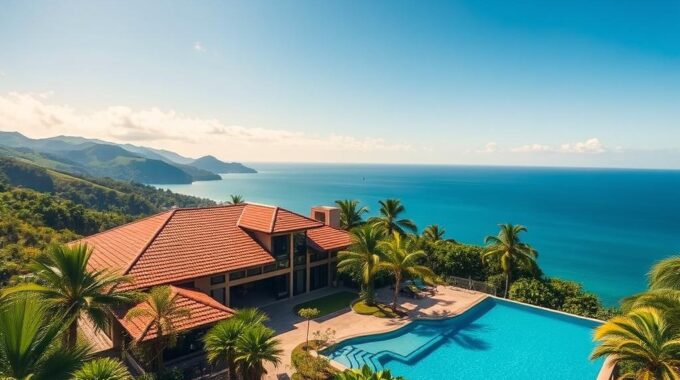In Costa Rica, property owners are increasingly leveraging their assets to secure equity loans, unlocking…
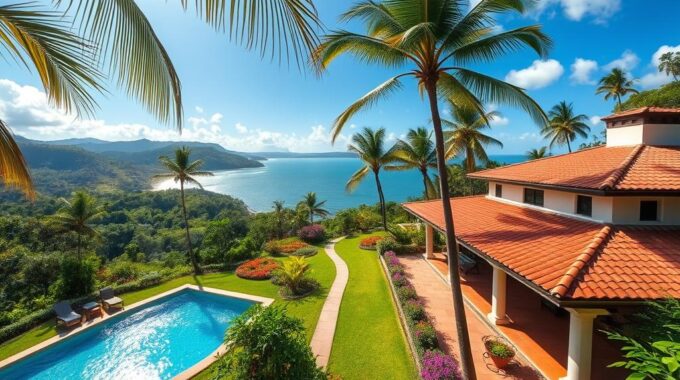
Private lending for eco-tourism development Costa Rica by GAP Equity Loans
Costa Rica’s thriving tourism industry has led to a significant surge in property prices, with a 5-10% annual increase driven by a booming expat community and eco-tourism ventures.
This growth presents lucrative opportunities for investors and developers looking to capitalize on the trend. GAP Equity Loans offers tailored financing solutions, connecting borrowers with private investors and providing competitive rates and flexible financing options.
By using property as collateral, borrowers can access significant funds with easier qualification, making it an attractive option for those looking to invest in eco-tourism projects.
The Thriving Eco-Tourism Landscape in Costa Rica
The eco-tourism landscape in Costa Rica is thriving, with a growing demand for environmentally conscious travel experiences. Costa Rica has established itself as a global leader in eco-tourism, attracting visitors from around the world with its rich biodiversity and commitment to sustainability.
Economic Impact and Growth Trends
Costa Rica’s real estate market is thriving, driven by a mix of tourism and economic growth. The country’s appeal as a top travel destination and its welcoming environment for expats have created a robust demand for properties. This demand is further supported by strong government policies and a growing economy.
The property sector has seen significant growth, with values rising steadily each year. Key factors include a 60% increase in GDP per capita and increased foreign investment. As a result, eco-tourism has become a significant contributor to Costa Rica’s economy, creating economic opportunities in previously underdeveloped regions.
Government policies and initiatives have played a crucial role in supporting the growth of eco-tourism. By promoting sustainable practices and preserving natural resources, Costa Rica has not only boosted its economy but also positively impacted local communities. For more information on private lending options for sustainable travel in Costa Rica, visit GAP Equity Loans.
Understanding Private Lending for Eco-Tourism Development Costa Rica
The rise of private lending in Costa Rica is revolutionizing the way eco-tourism projects are financed, offering new opportunities for investors. Private lending involves securing funds from non-bank sources, such as specialized firms or individuals, and is based on collateral-based financing.
In Costa Rica, this approach is gaining popularity as it minimizes risk for lenders while providing investors with access to capital for their eco-tourism projects.
How Private Lending Works in Costa Rica
Private lending in Costa Rica operates under a distinct framework that differs from traditional banking systems. The legal framework governing private lending for eco-tourism projects is designed to facilitate investment while protecting the interests of both lenders and borrowers.
The typical structure of private lending arrangements includes the use of collateral, competitive interest rates, and flexible repayment terms. Private lenders evaluate eco-tourism projects based on the property’s value rather than the borrower’s credit history, making it a more accessible financing option.
- Private lending provides an alternative to traditional financing methods for eco-tourism development in Costa Rica.
- The process is facilitated by specialized lending firms like GAP Equity Loans, which connect private investors with eco-tourism developers.
- This approach is becoming increasingly popular due to its flexibility and the potential for faster funding.
By understanding how private lending works in Costa Rica, investors can better navigate the financing landscape and secure the necessary funds for their eco-tourism projects.
GAP Equity Loans: Your Partner in Eco-Tourism Financing
In the thriving eco-tourism landscape of Costa Rica, GAP Equity Loans stands out as a trusted partner for developers seeking flexible financing options. With a deep understanding of the local market and a commitment to sustainable tourism initiatives, GAP Equity Loans offers tailored financing solutions for eco-tourism projects.
Company Background and Expertise
GAP Equity Loans is a specialized lender with extensive experience in financing eco-tourism development projects in Costa Rica. The company’s expertise lies in its ability to provide flexible financing solutions ranging from $50,000 to over $3 million, catering to various project needs. Whether it’s residential, commercial, or eco-tourism projects, GAP Equity Loans’ solutions are designed to maximize returns while supporting sustainable development practices.
GAP Investments, the parent company, has established itself as a reliable partner in the Costa Rican market, offering a service that is both knowledgeable and responsive to the unique challenges of eco-tourism development. By using your Costa Rican property as collateral, borrowers can access the funds needed to bring their eco-tourism projects to life.
The company’s approach to building long-term relationships with borrowers and investors in the eco-tourism sector is rooted in its values of environmental sustainability and responsible development practices. This commitment is reflected in its track record of successfully funding eco-tourism projects throughout Costa Rica.
Using Your Costa Rican Property as Collateral
Leveraging your Costa Rican property as collateral can be a game-changer for securing funds for eco-tourism development projects. In Costa Rica, property-backed lending is a key feature of GAP Equity Loans’ approach, providing a secure method for lenders while allowing borrowers to access necessary capital.
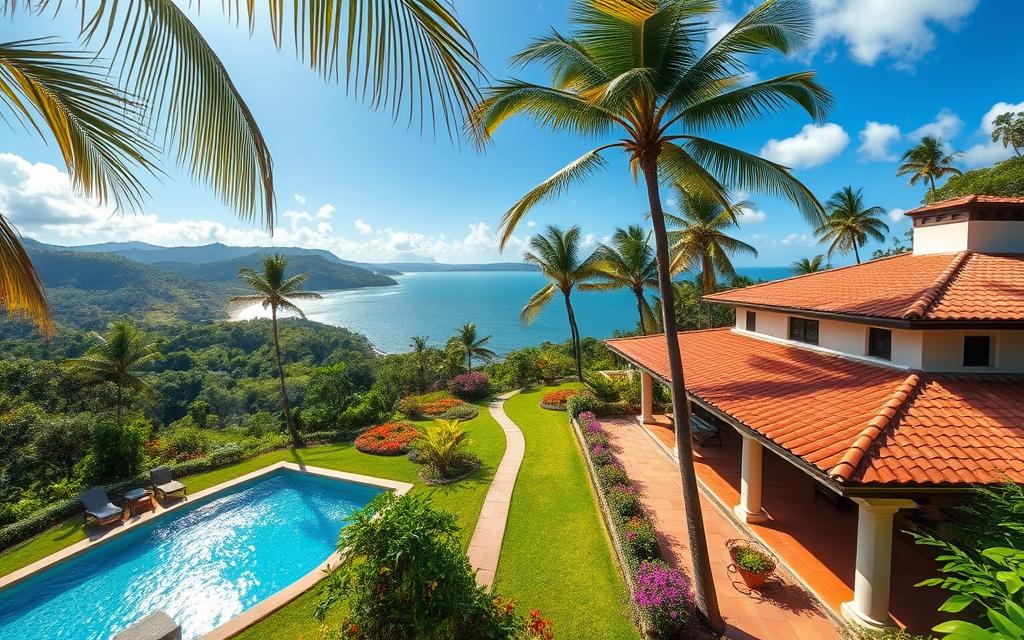
This method uses the property itself as security, minimizing risk for all parties involved. By ensuring loans are backed by tangible assets, the likelihood of default is significantly reduced. This approach is particularly beneficial for eco-tourism development projects, where initial investments can be substantial.
Simplifying Qualification with Home Equity Loans
Using your Costa Rican property as collateral simplifies the qualification process for loans. By leveraging the equity in your property, you can secure funding without adhering to the strict credit requirements of traditional banks.
- Types of properties that qualify as collateral include existing hotels, lodges, and undeveloped land.
- Property valuation plays a crucial role in determining loan amounts and terms.
- Legal considerations and protections are in place for both borrowers and lenders in collateral-based financing arrangements.
The value of your Costa Rican property directly impacts the loan amount and terms you can secure. GAP Equity Loans assesses the property’s value to determine the available equity, making it possible to unlock the assets tied up in your property.
Comprehensive Loan Options for Eco-Tourism Projects
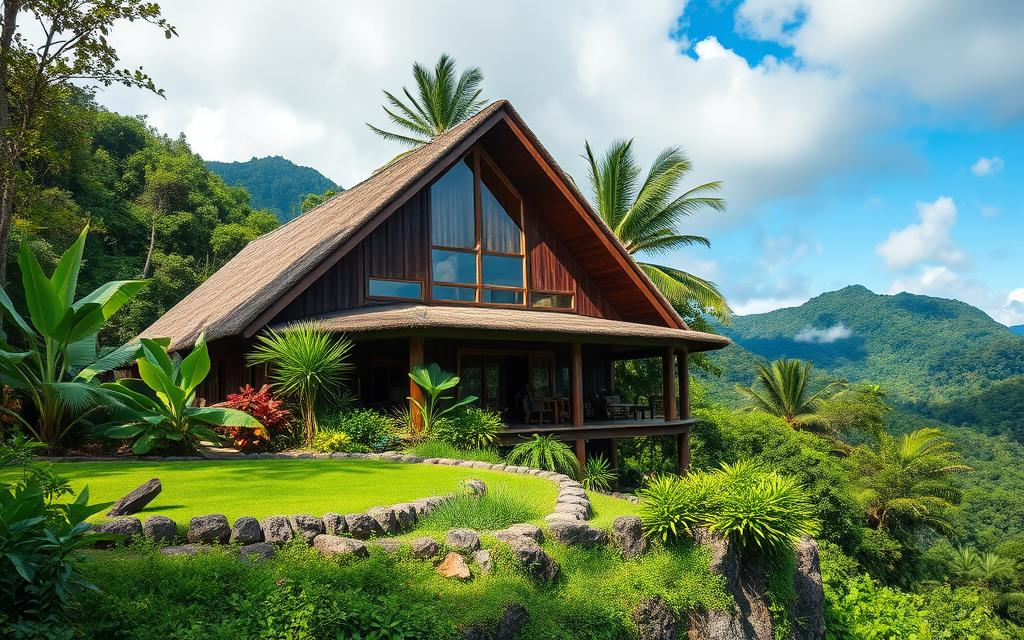
GAP Equity Loans offers a range of financing solutions for eco-tourism projects in Costa Rica, catering to diverse investment needs. Whether you’re developing a small sustainable lodge or a large-scale eco-tourism complex, our loan options are designed to support your project’s financial requirements.
Loan Amounts: From $50,000 to $1,000,000
Our loan amounts range from $50,000 to over $1,000,000, providing flexibility for various project scales. The loan amount is determined based on the project’s scope, property value, and development plans. For instance, a long-term hard money loan can be tailored to meet the specific needs of your eco-tourism project.
Different funding scenarios are available for various types of eco-tourism projects, including conservation areas and adventure tourism facilities. For larger developments with multiple phases, staged funding can be arranged to ensure that financial resources are allocated efficiently.
We’ve successfully funded numerous eco-tourism projects at different investment levels through private lending. By matching your project requirements with the appropriate loan amount, you can achieve optimal financial planning and bring your eco-tourism vision to life.
Competitive Interest Rates and Fee Structure
GAP Equity Loans offers highly competitive interest rates for eco-tourism development projects in Costa Rica, making it an attractive financing option for investors. The interest rates are determined based on several factors, including the loan-to-value ratio, project viability, and term length.
Interest Rates Starting at 12%
The interest rates for eco-tourism development loans through GAP Equity Loans start at 12% and can go up to 18%, depending on the aforementioned factors. This range is often more favorable compared to traditional banking options, providing investors with a cost-effective financing solution. For more information on financial investment opportunities in Costa Rica, you can visit GAP Equity Loans.
The determination of interest rates is based on a thorough assessment of the project’s potential and the value of the collateral. This approach allows GAP Equity Loans to offer competitive rates that are tailored to the specific needs of each project.
In addition to competitive interest rates, the fee structure associated with private lending for eco-tourism development is transparent and comprehensive. This includes origination fees, closing costs, and other applicable charges. Understanding these costs is crucial for investors to factor them into their project budgets and return on investment calculations.
- Origination fees are charged for the processing of the loan.
- Closing costs cover the finalization of the loan agreement.
- Other applicable charges may include appraisal fees and legal fees.
By offering competitive interest rates and a transparent fee structure, GAP Equity Loans enables investors to make informed decisions about their eco-tourism development projects in Costa Rica.
GAP Equity Loans vs. Traditional Banking Options
GAP Equity Loans and traditional banking institutions offer distinct approaches to financing eco-tourism development in Costa Rica, each with its own advantages. The choice between these two options can significantly impact the success and viability of eco-tourism projects.
One of the primary differences between GAP Equity Loans and traditional banking options lies in their approval and funding processes. Traditional banks are known for their lengthy and often cumbersome procedures, which can delay project initiation.
Faster Approval and Funding Process
Unlike traditional bank loans, which can take weeks or months to approve, GAP Equity Loans often process applications in just 7 to 10 business days. This quick turnaround is ideal for investors looking to seize time-sensitive opportunities in the Costa Rican eco-tourism market.
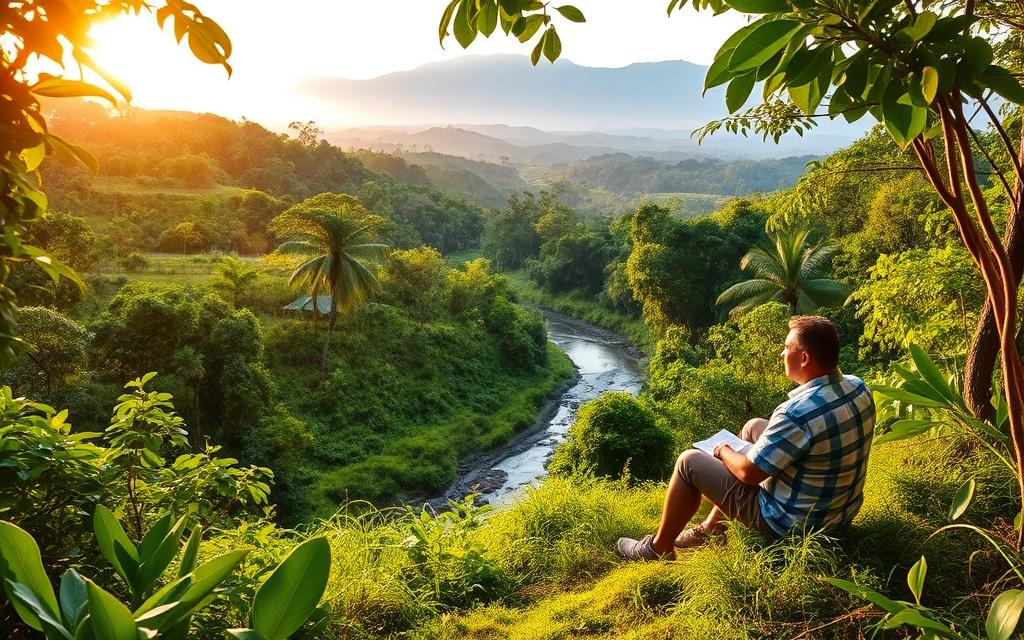
The documentation requirements for GAP Equity Loans are also more streamlined compared to traditional banks. Private lending emphasizes property value over extensive credit history and financial statements, making it easier for developers to qualify for loans.
Furthermore, GAP Equity Loans offer flexibility in loan structuring, allowing developers to tailor their financing to suit their project needs. In contrast, traditional financial institutions often impose rigid terms that may not be suitable for all eco-tourism projects.
- GAP Equity Loans provide a faster approval process, enabling developers to quickly capitalize on emerging opportunities.
- The emphasis on property value simplifies the qualification process for developers.
- Flexible loan structuring allows for more effective project management.
The relationship-based approach of GAP Equity Loans differs significantly from the transaction-focused model of conventional banks. This approach enables GAP Equity Loans to provide more personalized financing solutions for eco-tourism development projects in Costa Rica.
Application and Approval Timeline
Securing private lending for eco-tourism development in Costa Rica is a streamlined process with GAP Equity Loans. The company’s efficient application and approval process enables investors to capitalize on time-sensitive opportunities in the market.
The approval process is quick, typically taking just 7 to 10 business days. This speed is crucial for investors looking to seize opportunities in the competitive eco-tourism landscape.
Step-by-Step Application Process
The application process involves several key steps. First, potential borrowers submit an initial inquiry, followed by a comprehensive loan application.
- Required documentation is submitted, including property details and project plans.
- A property assessment is conducted to determine its value and potential for eco-tourism development.
- The loan application is reviewed, and due diligence is performed on the eco-tourism project.
GAP Equity Loans expedites the approval process while maintaining thorough due diligence. To prepare a successful loan application, it’s essential to address the specific requirements for eco-tourism development financing.
By understanding the application and approval timeline, borrowers can better plan their eco-tourism projects and secure the necessary funding.
Risk Management Through Loan-to-Value Assessment
The Loan-to-Value (LTV) ratio is a critical metric used by GAP Equity Loans to mitigate risk in eco-tourism development projects. LTV ratios play a vital role in maintaining the security of investments by ensuring that the loan amount does not excessively exceed the value of the property used as collateral.
GAP Equity Loans adheres to a maximum LTV ratio of 50%, meaning the loan amount is capped at half the property’s value. This conservative approach not only safeguards the investment but also facilitates quick access to capital when needed.
Protecting Investments with Appropriate LTV Ratios
By maintaining a low LTV ratio, GAP Equity Loans creates a safety buffer that protects both lenders and borrowers. This is particularly important in eco-tourism development, where projects can be complex and subject to various risks.
- LTV assessments help in evaluating the risk associated with lending for eco-tourism projects.
- A lower LTV ratio indicates a lower risk for lenders, as there’s a larger equity cushion in case of default.
- The valuation of properties for eco-tourism developments considers factors such as location, sustainability features, and revenue potential.
Understanding and managing LTV ratios is essential for the stability and sustainability of private lending in the eco-tourism sector. By carefully assessing LTV ratios, GAP Equity Loans ensures a secure loan process that benefits all parties involved.
Eco-Tourism Project Types Ideal for Private Lending
The diverse landscape of Costa Rica offers numerous opportunities for eco-tourism projects that can be financed through private lending. With over 70% of properties being eco-friendly, there’s a growing trend towards sustainable developments that not only support environmental conservation but also offer viable investment opportunities.
Sustainable Lodges and Accommodations
Sustainable lodges and accommodations are among the most popular eco-tourism projects in Costa Rica. These projects focus on minimizing environmental impact while providing unique experiences for tourists. Private lending can support the development of such eco-friendly accommodations, enabling investors to capitalize on the growing demand for sustainable tourism.
Other eco-tourism projects that can benefit from private lending include adventure tourism facilities, conservation-focused initiatives, and community-based eco-tourism ventures. These projects not only contribute to the local economy but also promote the preservation of Costa Rica’s rich biodiversity.
By financing eco-tourism projects through private lending, investors can tap into the growing market of environmentally conscious travelers. This not only offers a potential for significant returns on investment but also supports the conservation of Costa Rica’s natural resources.
Maximizing ROI on Your Eco-Tourism Development
Investors looking to capitalize on Costa Rica’s eco-tourism growth must adopt a well-informed approach to maximize their ROI. The country’s strong investment climate, coupled with its commitment to sustainability, makes it an attractive destination for eco-tourism investments.
Market Growth Projections in Costa Rica
Costa Rica’s property sector, particularly in eco-tourism, is experiencing rapid growth, indicating a strong potential for investment returns. With the country’s GDP per capita showing steady growth over the last 20 years, the prospects for profitable investments in eco-tourism development are promising.
The market growth projections indicate a continued upward trend, driven by increasing demand for eco-friendly accommodations and experiences. Areas with high conservation value and unique biodiversity are particularly attractive for eco-tourism development.
To maximize ROI, investors should focus on strategic project planning and phased development. This approach optimizes capital utilization and enhances returns by aligning with market demand and growth trends.
Incorporating sustainable practices not only supports environmental goals but also improves financial performance through operational efficiencies and market differentiation. Successful eco-tourism developments in Costa Rica have achieved exceptional returns by prioritizing sustainability and strategic planning.
Conclusion
As the eco-tourism sector in Costa Rica continues to grow, private lending emerges as a vital financing solution. GAP Equity Loans offers a streamlined process for securing funds using Costa Rican property as collateral, providing access to significant funding with favorable terms.
This approach not only supports eco-tourism development but also contributes to Costa Rica’s sustainable economic growth. With competitive interest rates and a commitment to supporting eco-tourism ventures, GAP Equity Loans is an ideal partner for developers.
To explore how private lending can help achieve your eco-tourism development goals, contact GAP Equity Loans today. Visit https://www.gapequityloans.com/ or reach out via WhatsApp at +506 4001-6413, or call 855-562-6427 for USA/Canada. Email info@gap.cr to schedule an initial consultation and take the first step towards a successful eco-tourism project in Costa Rica.


